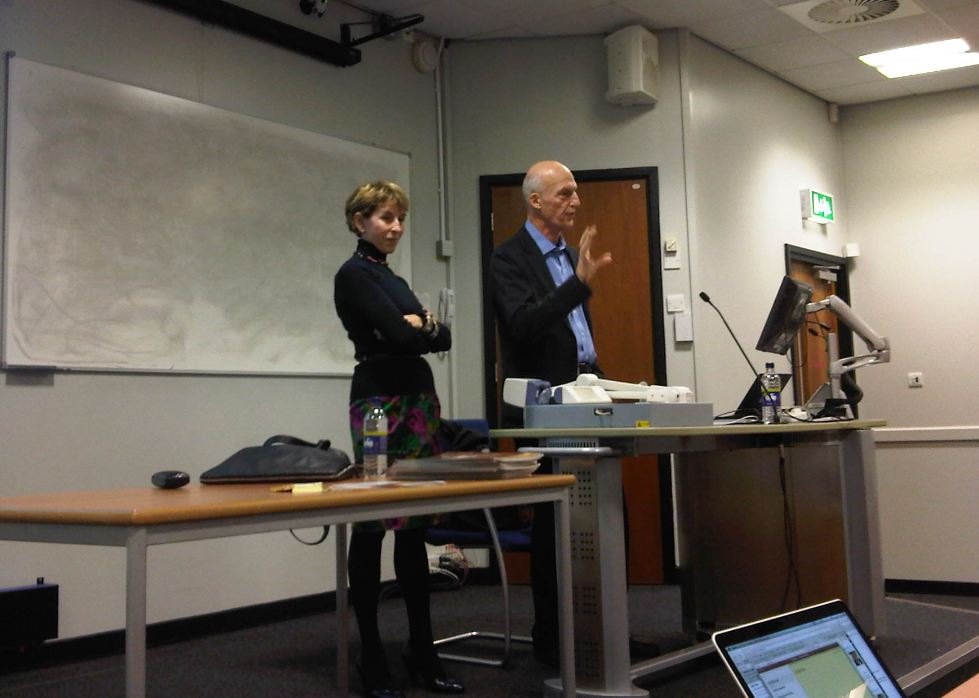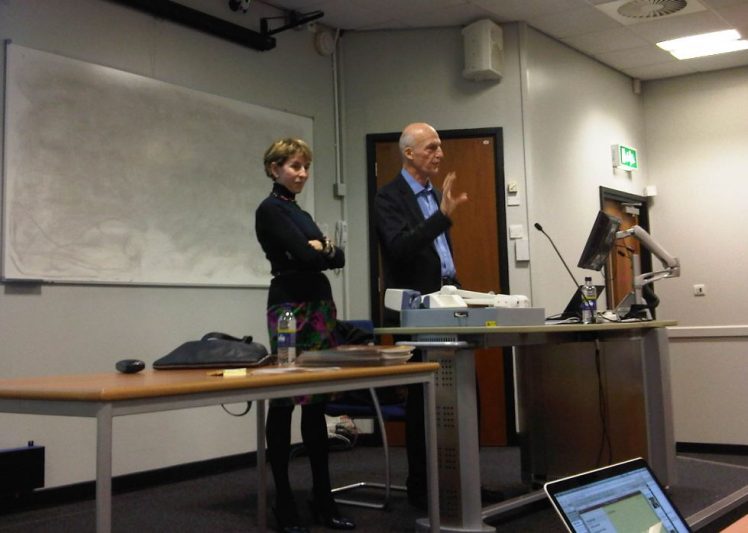Published: 22 February 2013
Country: UK, London


Stressing the essentials of MDI work such as freedom of expression and access to the information for all citizens regardless of their political, social and cultural background, Pesic explained the principles of inclusive journalism.
“Why ‘putting the facts together’ is not enough? ‘Where we get the facts from, who we interview and how we put the facts and the visuals together is what qualifies us to call ourselves responsible journalists”, said MDI’s Executive Director to the City University students.Discussing whether the inclusiveness can bring more audience and more credibility to the media, but also if it can contribute to the fuller public debate on all issue relevant to all citizens, Pesic has been asking the postgraduate students if the multiculturalism ‘utterly failed’ as claimed by many EU politicians?
The discussion MDI’s Executive Director has had with the students preparing to become journalists, brought up the issue of media reporting on migrants.
“The current reporting in the UK media – and the public debate – on potential ‘influx’ of Romanians and Bulgarians is missing facts: how many would be really coming, do we need them and whether they have rights to come? The way this issue is currently reported suggests that these people would do something illegal and that UK doesn’t need them. But that is wrong!”, said Milica Pesic addressing the City University students.
She presented the facts showing the shortage of the professions that could be provided by the migrants coming to the UK and Europe.
Pesic’s lecture at the City University was an opportunity to raise the challenges the future journalists will be facing and to offer them the arguments and the tools to broaden their audience and to contribute to the public debates on key political, social and cultural issues.
